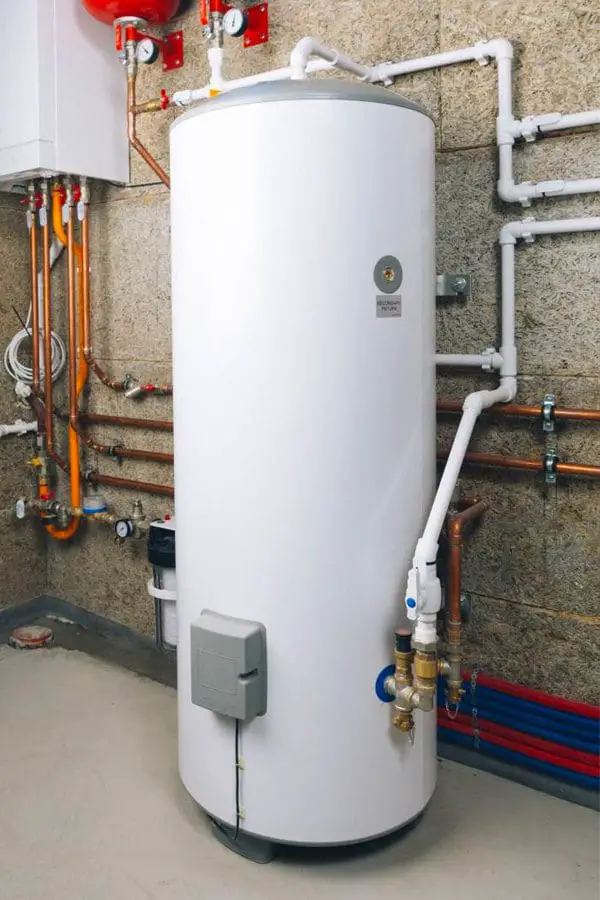If you have a boiler, one common issue that you may face is losing pressure. This can be quite frustrating and even dangerous if not addressed properly. In this document, we will discuss the possible reasons why your boiler keeps losing pressure and provide some solutions to resolve the issue.
Understanding Boiler Pressure
Before we dive into the potential causes of low boiler pressure, let’s first understand why it is important to maintain the correct pressure in your boiler. The pressure inside a boiler is crucial because it helps circulate hot water throughout your home. This heated water is then used for various purposes, such as heating rooms via white radiators, providing hot water for showers and taps, and more.
How Do You Know If Your Boiler Has Low Pressure?
Identifying low pressure in your boiler is relatively straightforward. Most boilers have a built-in pressure gauge, usually located on the front, displaying the boiler’s current pressure. If your boiler is operating correctly, the pressure gauge should typically read between 1 and 2 bars.
However, if the needle on the gauge is below 1, this indicates that your boiler’s pressure may be too low.. Remember, consistently low boiler pressure is not normal and should be addressed to ensure the efficient operation of your boiler.
There are several reasons why your boiler may be losing pressure. One common cause is a leak in the system. This can happen due to old or damaged pipes, loose connections, or faulty valves. It’s important to address these leaks as soon as possible to avoid long term issues. If you suspect your leak is from faulty valves then you should consider seeking professional water valve replacement services to maintain your boiler’s functionality and restore optimal pressure levels.
What Happens If Your Boiler Has Low Pressure?
When your boiler has low pressure, its efficiency can significantly decrease, leading to a poorly performing heating system. In some cases, the boiler might not work at all, causing a complete loss of hot water and heating.
If the pressure is too low, safety devices within the boiler will likely shut it down as a safety measure to prevent any possible damage or danger. Furthermore, low boiler pressure can also be indicative of a potential leak or fault in the system. It’s crucial to resolve pressure issues promptly to maintain your boiler’s lifespan and efficiency and, most importantly, to ensure your household’s safety.

Causes of Low Boiler Pressure
There are several reasons why your boiler may be losing pressure. One common cause is a leak in the system. This can happen due to old or damaged pipes, loose connections, or faulty valves. A leak in the system will result in water escaping and thus decreasing the pressure inside your boiler.
Another possible cause of low boiler pressure is a faulty expansion vessel. The expansion vessel helps regulate the pressure inside the boiler by absorbing excess water that expands when heated. If this vessel is not functioning properly, it can result in low pressure.
Solutions
If you notice that your boiler is losing pressure, the first thing you should do is check for any visible leaks in the system. If you find one, try to fix it or call a professional plumber to repair it.
If there are no visible leaks, you can try re-pressurizing your boiler. This can be done by following the instructions in your boiler’s manual or by contacting a heating engineer for assistance. It is important to note that if you constantly have to re-pressurize your boiler, there may be an underlying issue that requires professional attention.
Another solution to maintain proper pressure is to replace the expansion vessel if it is found to be faulty. This should only be done by a qualified heating engineer.
High Boiler Pressure – What Does It Mean?
Just as low boiler pressure can cause issues, high boiler pressure is also a problem. If the pressure gauge on your boiler exceeds 3 bars, this is usually a sign of high pressure. High boiler pressure is typically caused by an over-pressurized system or a faulty part within the boiler, such as a pressure relief valve not functioning correctly.
Impact of High Boiler Pressure
High boiler pressure can cause your system to work harder than it needs to, which can lead to increased wear and tear and, consequently, a shorter lifespan for the boiler. Additionally, high pressure can cause the boiler’s safety valve to release water via the pressure relief pipe. If this happens frequently, it could lead to a drop in pressure and the problems associated with low pressure. Ultimately, consistently high pressure may lead to boiler breakdown.
Dealing with High Boiler Pressure
If your boiler pressure is too high, you can release it by bleeding your radiators. This can help to reduce the pressure in the system. However, be sure to consult your boiler’s manual or contact a professional before attempting this procedure.
In cases where high pressure persists, it is advisable to contact a professional heating engineer to diagnose and fix the problem. The professional may need to replace a faulty part or adjust the system to ensure it operates at the correct pressure. As always, regular boiler servicing is recommended to prevent such issues from arising in the first place.
The Importance of Regular Servicing For Your Boiler
Regular servicing of your boiler is paramount to ensure its effective and efficient operation. Consistent check-ups can assist in identifying potential problems before they escalate into major issues, hence saving you from extensive repairs or even replacement.
Regular servicing also ensures that your boiler operates at peak efficiency, reducing energy consumption and subsequently lowering your utility bills. Additionally, it gives you peace of mind, knowing that your boiler is safe and not leaking poisonous carbon monoxide. To ensure your boiler’s longevity, regular servicing by a qualified engineer is not just recommended, but essential.
Conclusion
Maintaining the correct pressure in your boiler is crucial for its proper functioning and safety. If you notice that your boiler keeps losing pressure, take immediate action to address the issue. Regular maintenance and inspections can also help prevent low pressure problems from occurring.
Remember, a well-maintained boiler not only ensures your household’s comfort but also saves you from costly repairs and potential safety hazards. So, if you notice any fluctuations in your boiler’s pressure, don’t hesitate to seek professional help to keep it running smoothly.




